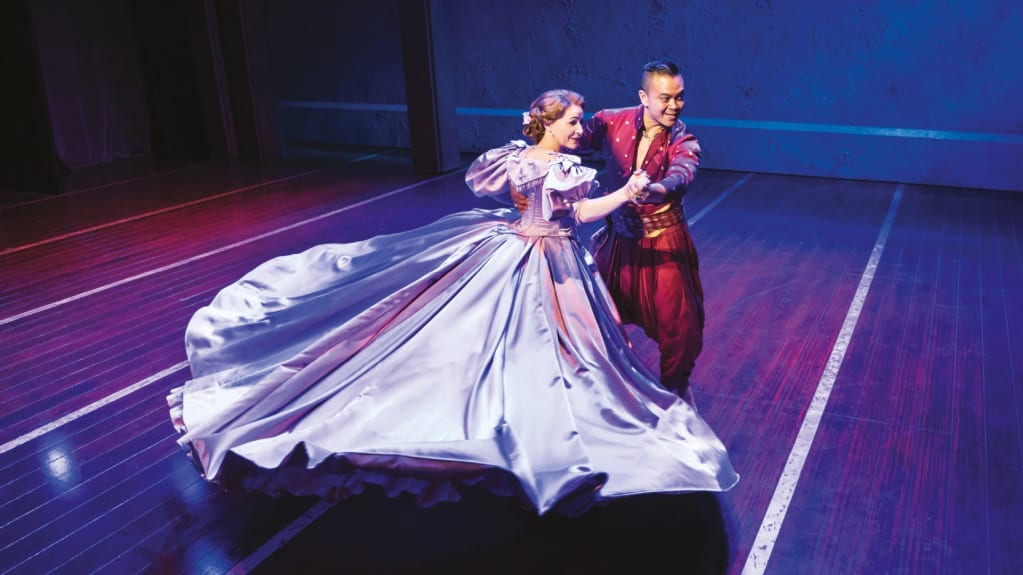Venue Cymru, March 7th to 11th 2023
Rodgers & Hammerstein, based on Margaret Landon’s book Anna and the King
Howard Panter for Trafalgar Theater Productions
 (4.5 / 5)
(4.5 / 5)
“How will I know when I know everything?” “When you are King!”
This faithful production of The King and I portrays the unexpected love story between the King of Siam and a schoolteacher really well. It also draws out a series of dilemmas thrown up by a remarkable passage in history, not least the problem of how one inherits omniscience!
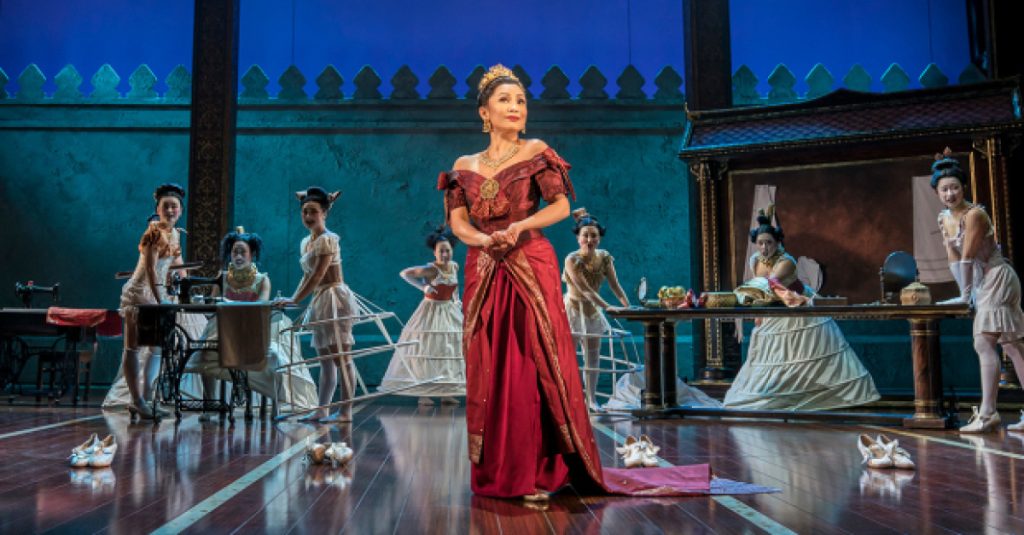
At its heart it is the story of two people, the King and Anna, but like much of Rodgers and Hammerstein’s work, the apparently light musical romance is rooted in political change.
For generations, each king of Siam had ultimate power within his protectorate, but the current king is now struggling to reconcile ancient rights with modern progress and the pernicious influence of western colonialism. The king is seen as barbaric, even though the show is set at the same time as the American Civil War, and only shortly after the Indian Mutiny.
In fact this king is an educated, intelligent man trying hard to balance his autocratic power with a more considerate, conscience-driven approach.
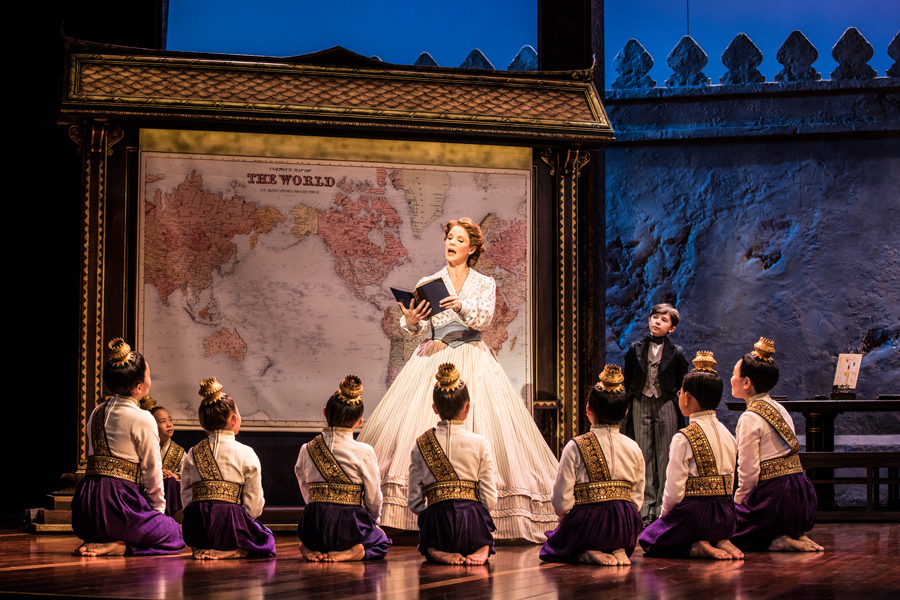
Opposite him is Anna, an intrepid, forthright widow employed as a teacher to the king’s children – all 67 of them. She arrives in Bangkok accompanied only by her young son, having never lived outside the British Empire. The culture shock in itself would be extreme.
While others say what they think the king wants to hear, Anna speaks her mind, becoming a “difficult woman” in the process. Her arrival throws up a number of clashes of culture, attitude and morality, some of which become humorous. Why did Western, Victorian women wear dresses with hoops ten feet wide? I have no idea. It is slightly ironic that I viewed this production on International Women’s Day, which seeks to raise the status of women worldwide today. Anna repeatedly asserts her right to be treated with dignity and equality, yet the king sees the role of a woman as merely to serve a man.
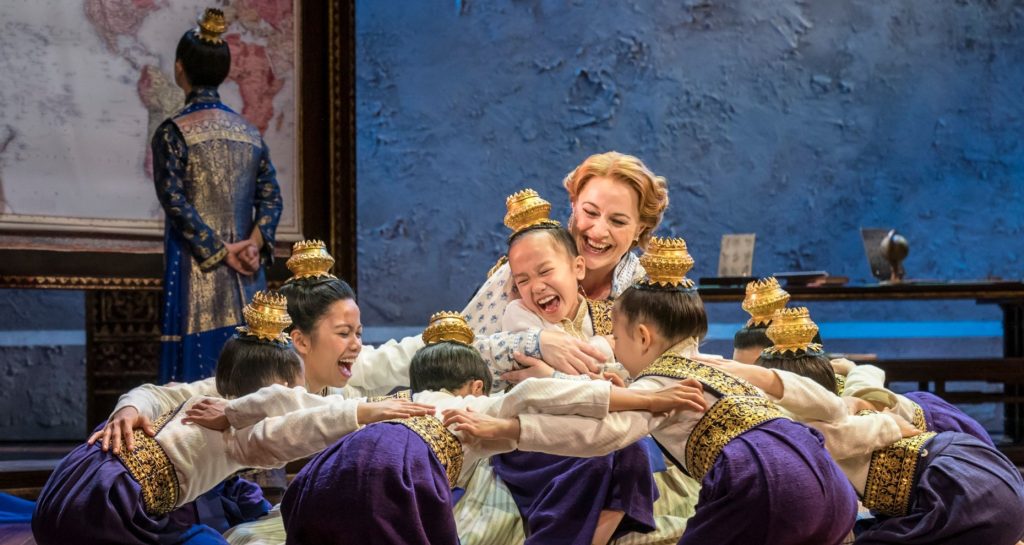
There is therefore much to take from this story. Helen George and Darren Lee are excellent as the leads and are ably-supported by the cast, in particular the children. The score has a number of well-loved tunes, and Marienella Phillips showed her operatic voice to good effect as Tuptim, the chief narrator, a slave girl with an education and attitude. The choice of Uncle Tom’ Cabin as a showpiece play for western visitors is a definite dig by R & H at US society.
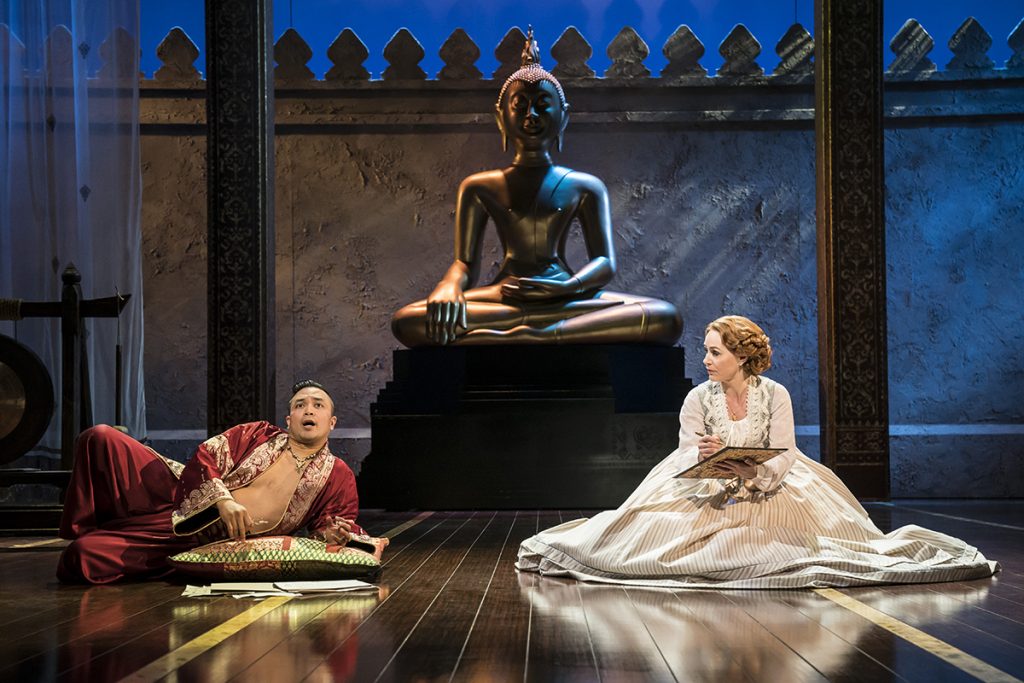
But there is a problem with this show in the present age: what was vital, bold and brilliant in 1951 lacks the intensity and grittiness that has become today’s standard. It has become a period piece. Some of the songs are very much of their time, and rather twee.
But this criticism nonetheless admits the show’s classic status; it’s a rattling good story. The score may seem dated to some, but others will recognise their enduring appeal. The audience, of course, lapped it up from curtain-up and offered a sincere ovation at the end. For all its age and increasing creakiness, no one can deny its star quality.

